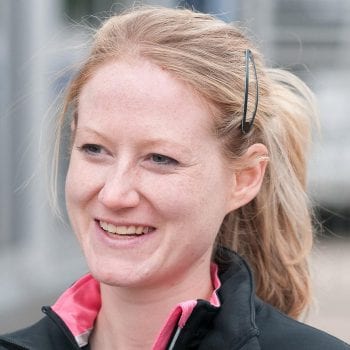20 May 2020
Vetlife reports ‘busiest ever months’ since COVID-19 began
Veterinary support service received a record number of contacts in February and March, with mental health and stress the most common theme.

Image © Robert Kneschke / Adobe Stock
Vetlife Helpline, the confidential veterinary crisis support service, has reported a record number of contacts from all sectors of the profession during the early stages of COVID-19.
Helpline manager Rosie Allister said: “By comparison, in the first three months of 2019 we received 685 contacts – for us, contacts are always telephone calls and emails. In the first three months of 2020 we received 1,136 contacts – so quite a big increase.
“Almost all that increase was in February and March, and these two were our busiest ever months at Helpline. In March we received 432 contacts, which is approximately 14 contacts a day.”
Dr Allister said the good news was that data for April seemed to indicate contacts had fallen back to normal levels.
However, she cautioned: “It does seem like there was a peak, but I’m not sure that it’s going to be a sustained decrease. We’re just going to have to wait and see.”
Themes
The 24/7 Helpline that’s available to all veterinary personnel has, for the first time, started to record themes from contacts to identify and better understand trends.
The most common themes – where the contact offered the information – were:
- mental health and stress – each making up about a third of all contacts
- stress at work and job demands – 1 in 6 contacts
- working conditions, physical health problems, relationships and family issues – 1 in 10 contacts
- self-harm, suicidal thoughts, pain, financial worries, job satisfaction and work-life balance – in the region of 1 in 20 contacts
- bereavement, violence, abuse, professional conduct, disciplinary action or substance abuse including alcohol – fewer than 1 in 20 contacts
Analysis of the data showed the role of about two thirds of contacts – if contacts don’t mention their roles, the trained volunteer Helpline operatives don’t ask.
Where the role of the contact was known, the data showed:
- 42% were vets
- 25% were vet nurses
- 19% were vet students
- 6% were vet nurses
- 5% were practice managers
Multiple issues
During the period of COVID-19, Dr Allister said Helpline had received many calls primarily concerning the pandemic, though many contacts had multiple issues.
She said: “We’ve had student vets and student vet nurses contacting us about disruption to study, and that was very evident early on – especially after lockdown. We’ve also had people who have experienced bereavement at this stressful time and those in isolation.
“There’s been a lot of concerns from people who have been furloughed, and those worried about job security and income. Other contacts are from people struggling with care responsibilities, and from those still in work whose colleagues have been furloughed and they’re experiencing pressures of workload.
“We’ve also heard from practice managers and partners who are worried about how they’re going to pay staff and whether their businesses will survive. It’s definitely across the whole industry.”
 ‘We can manage’
‘We can manage’
Dr Allister (pictured) said: “I think the major message from us is we’re really glad people are getting in contact. They’re doing exactly what they need to do. When we’re struggling we need to talk about it; we need to reach out for support.
“Even though we at Helpline have been really busy, we have not been overwhelmed – even at our busiest time ever in February and March – and we can manage if people want to call us.
“It’s really important for people to know that, even if the numbers contacting us do spike again, we would be quite able to deal with those extra calls. People need to know that our service is here for them.”
Dr Allister thanked the industry for its support. She added: “These are really challenging times, but what I’ve seen is how strong the profession is, how we work well together, how we support each other and how we’re much stronger together.”

Get in touch
Vetlife Helpline offers confidential emotional support to everyone in the veterinary community. It is available 24 hours a day, 365 days a year. Anything you discuss is confidential and you don’t have to use your real name.
To get in touch with Vetlife, telephone 0303 040 2551 or email anonymously via vetlife.org.uk
Latest news

Practice developments
Price freezes, incentive ban and comparison site among CMA remedy options
1 May 2025
